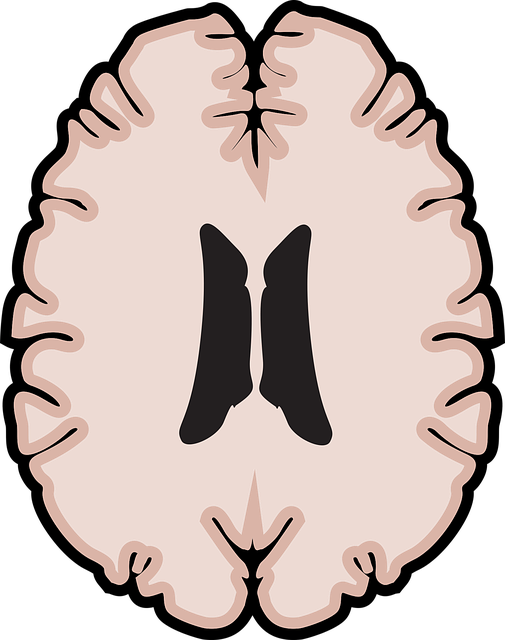Mental health professionals specializing in Highlands Ranch Cognitive Processing Therapy (HCPT) must prioritize risk management to ensure patient safety and emotional well-being. This involves a multi-faceted approach including hazard assessment, empathy-driven strategies, and supportive environments to mitigate risks like burnout, stress, and therapy crises. Training in trauma-informed care, coping strategy mastery, and strict adherence to privacy regulations are crucial. Integrating mental wellness coaching, journaling exercises, and community outreach programs can enhance patient support. Effective risk management planning, ongoing monitoring, and specific HCPT techniques integrated into practice foster a safe, supportive therapeutic environment for both patients and professionals.
“Risk management is an essential aspect of mental health practice, especially in therapeutic approaches like Cognitive Processing Therapy (CPT). This article guides mental health professionals in navigating potential risks and creating robust safety plans. We explore key areas including understanding risk dynamics in CPT, developing tailored strategies for Highlands Ranch practices, and implementing effective monitoring systems. By delving into these topics, we aim to enhance the resilience of therapists and ensure the well-being of clients engaged in Highlands Ranch Cognitive Processing Therapy.”
- Understanding Risk Management for Mental Health Professionals
- Identifying Potential Risks in Cognitive Processing Therapy (CPT) Practice
- Developing a Comprehensive Risk Management Plan for Highlands Ranch Practices
- Implementation and Ongoing Monitoring Strategies for Effective CPT Risk Management
Understanding Risk Management for Mental Health Professionals

Mental health professionals are well-versed in helping others navigate their emotional and psychological challenges, but they too require robust risk management strategies to thrive in their practice. Risk management for these specialists involves a multifaceted approach aimed at ensuring both their mental wellness and the effective delivery of therapy services, such as Highlands Ranch Cognitive Processing Therapy. By implementing comprehensive plans, professionals can mitigate potential risks, enhance patient safety, and provide high-quality care.
This process includes identifying and assessing various hazards, from burnout and stress to potential crises during therapy sessions. For instance, using empathy-building strategies and crisis intervention guidance is crucial in managing these risks. Professionals must stay attuned to their own emotional well-being while cultivating an empathetic environment for their clients, thus fostering a supportive and secure therapeutic space.
Identifying Potential Risks in Cognitive Processing Therapy (CPT) Practice

In the highland ranch cognitive processing therapy (CPT) practice, professionals must remain vigilant in identifying potential risks that could impact patient outcomes and their own mental wellness. While CPT is an effective therapeutic approach for treating various mental health conditions, it’s not without its unique challenges. One key risk lies in the intricate nature of cognitive reprocessing; patients may struggle with reliving traumatic memories or experiencing emotional distress during therapy sessions. Adequate training in trauma-informed care and mastering coping strategies are essential to mitigate these risks.
Additionally, maintaining confidentiality and ethical boundaries is paramount. Given the sensitive nature of the information shared by patients, professionals must strictly adhere to privacy regulations and establish clear guidelines for data security and client confidentiality. Integrating mental wellness coaching programs and journaling exercises as supplementary tools can enhance patient support and self-care practices, while community outreach program implementation can foster a network of resources, promoting holistic mental wellness development within the Highlands Ranch community.
Developing a Comprehensive Risk Management Plan for Highlands Ranch Practices

In Highlands Ranch, mental health professionals face unique challenges that require a robust Risk Management Planning approach. A comprehensive strategy tailored to the locale’s needs is essential, particularly with the growing demand for services like Highlands Ranch Cognitive Processing Therapy (CPT). Effective risk management ensures patient safety while fostering a healthy work environment. It involves identifying potential hazards—be they related to patient care, staff well-being, or operational aspects—and implementing practical solutions.
A well-structured plan should incorporate stress reduction methods and comprehensive training for all personnel. This includes regular sessions on trauma-informed care, crisis intervention, and resilience-building strategies. By prioritizing these measures, Highlands Ranch practices can mitigate risks, enhance patient outcomes, and support the long-term mental health of their professionals, thereby fostering a sustainable and nurturing therapeutic environment.
Implementation and Ongoing Monitoring Strategies for Effective CPT Risk Management

Implementing effective risk management strategies for mental health professionals involves a dynamic approach that combines structured plans with ongoing monitoring. For practitioners specializing in Highlands Ranch Cognitive Processing Therapy (HCPT), this process begins by integrating specific therapy techniques into routine practice. Encouraging clients to maintain a Mental Wellness Journal, for instance, can offer valuable insights into their emotional states and thought patterns, facilitating proactive mood management through HCPT exercises.
Regular check-ins with the client, coupled with self-reported progress in the journal, allow mental health professionals to adjust treatment plans as needed. This ongoing monitoring is further enhanced by incorporating Emotional Intelligence guidance, enabling practitioners to recognize subtle changes in clients’ emotional intelligence and adapt their strategies accordingly. Such proactive measures ensure that any potential risks are promptly addressed, fostering a safe and supportive environment for clients engaged in HCPT therapy.
Effective risk management planning is essential for mental health professionals, especially those practicing Highlands Ranch Cognitive Processing Therapy (CPT). By identifying potential risks and developing comprehensive strategies, therapists in Highlands Ranch can ensure a safer and more beneficial therapeutic environment. A well-structured risk management plan involves regular monitoring and ongoing adaptation to address emerging challenges. This approach not only protects clients but also enables therapists to provide high-quality CPT services, fostering positive outcomes and building trust within the community.














